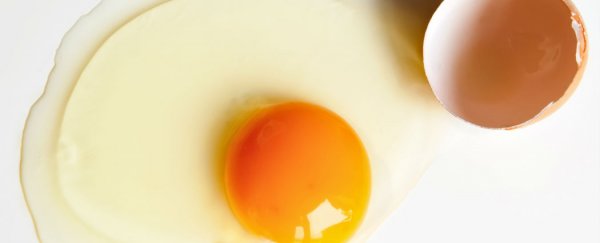Australian and US chemists have figured out how to unboil a hen's egg, in an effort to figure out what to do with the masses of valuable molecular proteins that could be used for many different applications in the biotechnology industry, if it weren't for their tendency to frequently 'misfold' themselves into useless shapes.
"Yes, we have invented a way to unboil a hen egg," said one of the team, Gregory Weiss, a professor of chemistry and molecular biology and biochemistry at the University of California, Irvine, in a press release. "In our paper, we describe a device for pulling apart tangled proteins and allowing them to refold. We start with egg whites boiled for 20 minutes at 90 degrees Celsius and return a key protein in the egg to working order."
The secret, says Mary Beth Griggs at Popular Science, was adding urea - yes, the stuff that's passed out of your body via urine, formed due to the breakdown of proteins - to the boiled eggs. This saw the knotted proteins break down into pieces, and the solid, cooked eggs restored to a clear, liquid protein known as lysozyme. This liquid egg was then processed using a special piece of equipment at Flinders University in South Australia known as a vortex fluid device, which untangled and re-joined the pieces together in a matter of minutes.
"It's not so much that we're interested in processing the eggs; that's just demonstrating how powerful this process is. The real problem is there are lots of cases of gummy proteins that you spend way too much time scraping off your test tubes, and you want some means of recovering that material," says Weiss.
Publishing in the journal ChemBioChem, the team says this new method of protein detangling is a vast improvement on current techniques, which can take up to four days to complete. Taking mere minutes, Weiss says, their technique "speeds things up by a factor of thousands".
This could solve a problem I was not aware of - pharmaceutical companies commonly produce cancer antibodies for treatment using hamster ovary cells, which are expensive, but valuable, as they don't often misfold proteins. The same goes for industrial cheese makers and farmers who need these kinds of proteins to drive the fermentation process. Using this new technique, scientists could instead use proteins extracted super-cheaply from yeast and E. coli bacteria and restore them to a useable form.
Source: Popular Science
